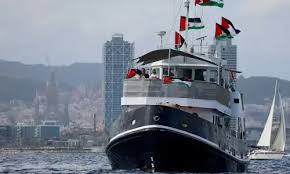Two UK firms join forces to build ‘last-mile’ electric delivery vehicles

London: Two British automotive companies have teamed up to build thousands of electric delivery vehicles in the UK – the latest in a line of businesses attempting the risky push into vehicle manufacturing after several prominent failures.
The motorsport manufacturer Prodrive and Astheimer Design have said they plan to build 10,000 of their one-person delivery vehicles by 2030, with production planned for the UK.
Their joint venture, ELM Mobility, aims to sell the electric delivery vehicles – technically quadricycles rather than fully fledged vans – for £25,000, in an attempt to find a profitable niche for “last-mile” deliveries between smaller cargo bikes and larger vans.
The company has built demonstrator versions at Prodrive’s facilities near Banbury, Oxfordshire, but has yet to confirm where the finished version will be made.
Investors in British commercial vehicle manufacturers have had a torrid time in recent years. UK-based Arrival garnered a huge stock market valuation of more than $15bn (£11.4bn) but it crashed into administration this year, with its prototype electric vans sold off at auction to YouTubers. Volta Trucks had to be bailed out after its battery supplier collapsed and the lorry startup Tevva fell into administration in June.
Prodrive is owned by David Richards, a former Formula One team boss and motorsport veteran. The company does design and manufacturing work for motorsport teams and car manufacturers. Prodrive and Astheimer, which is owned by the co-founder Carsten Astheimer, worked together with Volta Trucks to design and build prototypes.
That work was previously conducted on a small scale. However, ELM’s bosses think they have learned from their predecessors’ mistakes – having seen some of them at first-hand. Rather than taking on big automotive players producing vans or cars, they believe there is a gap in the quadricycle market.
Quadricylces are lighter, smaller vehicles, with weight limits set in the UK and elsewhere in Europe (and one of the most popular electric quadricycles, the Citroën Ami, comes as a delivery vehicle version). ELM’s prototype meets the “heavy quadricycle” classification, meaning it must weigh less than 600kg, excluding its batteries.
Iain Roche, the chief executive of Prodrive Advanced Technology and a co-leader of ELM, said delivery companies have said they want a small, energy-efficient vehicle capable of carrying a standard pallet of goods. That would speed up deliveries, while also avoiding the need for heavier, more expensive vans.
“The customer base is really dissatisfied,” said Roche, pointing to rickety Chinese-made vehicles that – he says – are often out of service. “If you can get a full-height pallet on a [quadricycle] it’s a gamechanger.”
ELM’s vehicle, called Evolv, saves weight by “shrink-wrapping” the cab around the driver but it also contains a built-in pallet lifter so that a single person can load it.
Rather than copying Arrival’s model of manufacturing its own components, Roche said ELM will rely as much as possible on standard parts so that it can benefit from technology developments and falling prices. It is hoping to use contract manufacturers in the UK, with an eye on expanding elsewhere in Europe if successful.





